16 Dec: Keeping the Flame Alive…
Reaffirming the Struggle for Freedom Without Fear, Against Sexual Violence and Gender Discrimination
“What has changed since last December?” is the question everyone is asking a year after the brutal gangrape and murder that sparked off a massive movement. After all, the number of rapes and sexual assaults are higher than ever, and women certainly don’t feel safer.
(Photo: At the Munirka bus stop on the 16th December, 2013.On Monday students from JNU, Jamia Millia Islamia & DU, gay rights activists and professors marched with candles from JNU to Munirka bus stop where Nirbhaya and her friend boarded the bus that winter night.)
In fact, the changes are enormously significant and precious. The winds of change that made last year’s slogans of fearless freedom possible, continue to blow strong, in spite of the many obstacles.
Last year, many had wondered why only a handful of the most brutal of gangrapes where slumdwellers were perpetrators, made it to headlines, while the everyday sexual degradation faced by women, or sexual violence by powerful men passed unnoticed. A year later, 16th December saw sexual harassment by a retired Supreme Court judge making it to the headlines and editorials. The fact that sexual harassment and violence faced by women at the workplace, and the need to end the impunity of the more privileged perpetrators, has emerged as a matter of public concern is an important and welcome change.
In the past year, many women have spoken of how the protests made them feel more empowered to raise their voice against sexual harassment and violence. The lawyer who wrote of the harassment at the hands of Justice Ganguly has spoken of how the protests of last December might have helped her to go public. “What has changed,” she said, “is that women …feel there is a small group, a small segment of society that will stand by them. Of course, that number is still very small, but for those who have been at the receiving end, it means a great deal.” The journalist in the Tejpal case could talk of the violence she faced to her male colleagues – confident of their understanding, support and solidarity, and they stood staunchly by her. Soni Sori, the fighter against custodial rape by Chhattisgarh cops, was greeted with long applause this year at a Delhi gathering of last year’s protestors, as she told them, “I got strength from the movement you have sustained since last December. The torture had demoralized and shattered me physically. In jail, I realized there are women in worse conditions than me. I reached out to you and you responded. The movement you launched and the strength I got from it kept me going.” The fight against sexual violence is still long and hard – but it is significantly less lonely, and the ranks of the fighters have swelled.
The other immensely significant change can be witnessed in the spontaneous outburst of outraged protest against the Supreme Court’s Section 377 verdict re-criminalising homosexuality. In another day and age, a Supreme Court ruling that homosexuals are criminals would have further isolated and demoralised an already marginalised group of gay rights activists, who could not count on support even from some of the largest women’s organisations. This year, days before December 16 2013, enormous street protests declared that the Supreme Court ruling bends shamefully to religious reactionaries and fails to protect the rights of homosexuals. Public opinion has forced even most ruling class political parties to break their silence and at least say the right thing. Some prominent supporters of the BJP among young celebrities, who had been touting Modi as the leader of ‘modern, young India’, have been embarrassed by the BJP’s retrograde support for Section 377 and BJP leaders’ homophobic utterances. Even in the mainstream media, the dominant opinion is that Section 377, that declares homosexuality to be ‘unnatural’, is a relic of a patriarchal, unscientific, and discriminatory colonial order. Such a law had no place in India prior to colonial rule, and should certainly have no place in modern democratic India. In a world where even the Pope is having to modify the Catholic Church’s homophobic stances, personal freedoms and constitutional liberties cannot be violated to defer to the opinion of a handful of religious leaders and godmen. A significant section of India’s vocal younger generation finds it troubling that the Supreme Court, which chooses to be vocal about red lights on cars, should be ‘recuse itself’ from protecting people from an unconstitutional law.
Doubtless, the forces of patriarchal reaction too are gathering their forces. The communal rapists of Muzaffarnagar are yet to be arrested even after an FIR has been registered. Communal and casteist forces still seek to curb women’s freedoms and unleash violence on minorities and oppressed castes in the name of ‘protecting women.’ Dalit and adivasi women battling rape continue to struggle for justice. Rapes by Armed Forces continue to be shielded by the AFSPA – the AFSPA that is imposed not only in Kashmir and Manipur but has also recently been given an extension in CPIM-ruled Tripura. Stalking by the Gujarat Government and its ‘Saheb’ is being justified in the name of ‘protecting’ the victim from her male friends. The Chairperson of the NCW, herself a leader of the Congress, echoes the sentiment of the RSS chief Mohan Bhagwat when she blames rapes on urbanisation and advises women to keep themselves safe by adhering to ‘Indian culture.’ Justice Ganguly sticks to his post as West Bengal Human Rights Commission Chairperson in the face of sexual harassment charges that have been upheld by a Supreme Court panel – and a former Speaker and a former Chief Justice are part of his team of defenders. A Central Minister and senior judges alike warn that if women complain against sexual harassment, they won’t get jobs.
Still, these forces of reaction are forced to shout louder – because they know they have to work harder to be heard above the slogans of ‘bekhauf azaadi.’ The battle for fearless freedom is a long one, by no means easy – but the fighters’ ranks have swelled, their voices have grown more confident, and their spirits are high. The winds of change won’t be stopped by the wall of reaction.
December 16th: 1st Anniversary of Nirbhaya Case
Demonstrations in West Bengal: Women and student-youth activists of AISA, AIPWA and RYA held a day-long protest-demonstration at College Street on December 16, marking the anniversary of the spark that lit a prairie fire of movements against gender violence in the country. A stretch of the busy street, facing the legendary Coffee House, was lined with posters decrying the Supreme Court verdict on article 377, calling for justice for countless rape victims of the State, demanding Justice Ashok Ganguly’s resignation as chairperson of the WBHRC, and calling for a CBI inquiry into the Chit-fund scam that robbed the poorest toiling masses of Bengal by a nexus patronised overtly by the TMC Govt. The protest was addressed by Comrades Bhuvana, Partha Ghosh, student activist Debmalya, women activists Shukla Sen, Chandrasmita, Kasturi, Krishna Bandyopadhyay, LGBT activist Anurag and many others. Several songs were sung as passers-by stopped over and joined with their voices. A street play was also performed. Protests were held at Hooghly and other places in the State.
(Below we carry two reports published in the ToI of 17th December 2013, Delhi edition, with minor changes)
Nirbhaya case: At JNU, the cause has grown wider
NEW DELHI: Students of JNU have kept alive the flames of protest they sparked a year ago after city girl Nirbhaya was gang-raped and brutalized on December 16, 2012. On Sunday they held a night vigil where through soul-stirring performances and inspiring speeches they extended their movement to encompass issues such as marital rape, the Armed Forces (Special powers) Act and the draconian Section 377.
On Monday, they kept their solidarity show going. Joining hands with students from Jamia Millia Islamia and Delhi University, gay rights activists and professors, they marched with candles from Ganga Dhaba in JNU to Munirka bus stop where Nirbhaya and her friend boarded the bus that winter night.
Sunday evening started with a five-minute short film – “In the Body of Justice” by Eve Ensler, author of ‘The Vagina Monologues’. Prof Nivedita Menon of JNU delivered a moving lecture on how the common man must “take back the republic”.
She called for a new sexual assault law. “We need a freshly-designed law that will reflect gender neutrality.” This legislation, she said, should take into account mass violence during communal riots, violence on women in caste situations where dalit women are raped. “We need a law that reflects the realities of our society.”
Actor Maya Rao presented a skit called “Walk” developed against the backdrop of the Nirbhaya incident. Her message: “The battle got much bigger since 2012”. Freedom, not protection, is what this battle is about, she said.
The longest applause was for Soni Sori, a suspected Dantewada Maoist, who was allegedly tortured and raped brutally by policemen. “I got strength from the movement you have sustained since lastDecember. The torture had demoralized and shattered me physically. In jail, I realized there are women in worse conditions than me. I reached out to you and you responded. The movement you launched and the strength I got from it kept me going,” she said.
On Monday nearly 800 students marched to Munirka where Kavita Krishnan, secretary of the All India Progressive Women’s Association and gay right activist Gautam Bhan addressed the gathering with Prof Kamal Mitra Chenoy. Supreme Court lawyer Vrinda Grover addressed the students before the march began.
Nirbhaya fire burns bright, heat on ex-judge
NEW DELHI: A year after the Nirbhaya case, activists and protesters find women’s liberty a far cry. They came together once again at Jantar Mantar on Monday to assess the changes brought by the yearlong campaign that catapulted the issue to the forefront of Delhiites’ consciousness.
Topping their list of demands was removal of Justice A K Ganguly as the chairman of West Bengal Human Rights Commission. Women who had experienced sexual assault also came forward to share their stories. At a protest organized by All India Democratic Women’s Associaton ( AIDWA), All India Progressive Women’s Association (AIPWA), National Federation of Indian Women (NFIW) and several others, activists presented a memorandum addressed to the Prime Minister, demanding the removal of former Supreme Court judge Justice Ganguly besides taking steps for the creation of committees against sexual harassment at every workplace.
“When people were protesting against Nirbhaya’s gangrape here on December 24, Justice Ganguly, in a five-star hotel nearby, was sexually harassing this law intern. The PM has to assure us that whether it is a man from jhuggis, a high-profile journalist, or a Supreme Court judge, no one will escape punishment,” said human rights lawyer Vrinda Grover as protesters shouted slogans.
Aruna Kumar, senior private assistant to the principal of ARSD college in DU, spoke about how her position had not been restored even after a chargesheet was filed on her complaint of a sexual assault by the former principal. “My room at the college office has been closed. I have not been given any work since I filed the complaint and am still being discriminated against. Many such harassment cases in DU are now coming out,” she said.
Tribal schoolteacher from Chhattisgarh, Soni Sori, attended the protest but did not address the gathering. She sat quietly as other activists described how she was allegedly stripped naked and faced brutal sexual abuse in custody.
Revati Laul, journalist and a friend of the Tehelka journalist allegedly sexually assaulted by editor Tarun Tejpal, said she and the victim had been covering Nirbhaya’s case extensively and couldn’t imagine that their editor would assault somebody. “If there was a sexual harassment committee at work, my friend would have had the option to see her case pursued systematically.”
Salma (name changed), who used to be the national programming head with a radio channel, recollected the trauma after she was allegedly assaulted by the CEO of the company. “I have been fighting the case for three years but have got no support,” she said.
Gourab Ghosh, a JNU student leader, had come with many other students. “Every institution should have a gender sensitization committee against sexual harassment like that in JNU.”
Kavita Krishnan, secretary, AIPWA stressed that the government should immediately start a public education campaign on women’s rights and freedoms.
(Courtesy CPI ML’s ML Update. http://cpimlliberation.wordpress.com/ml-update-weekly/)
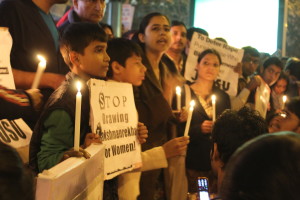
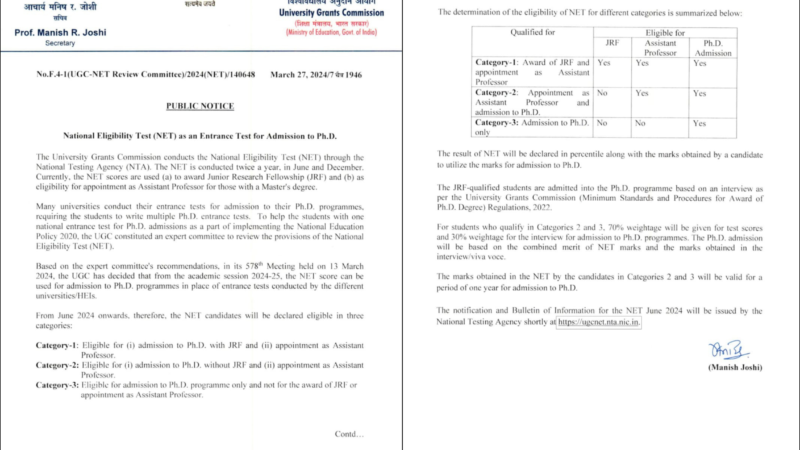
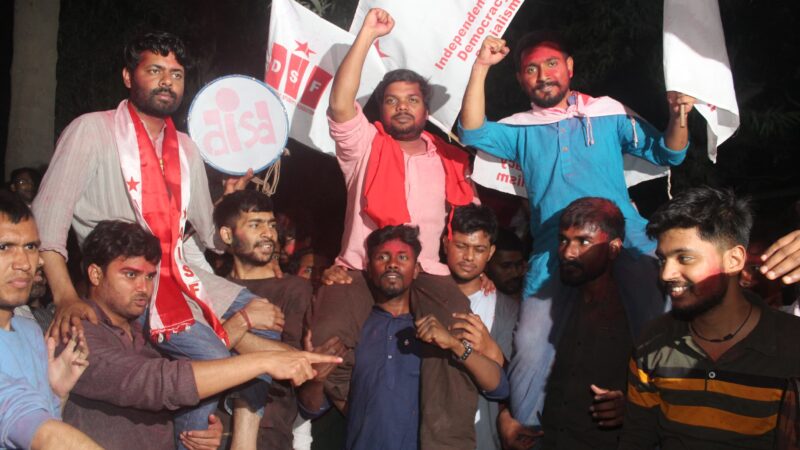
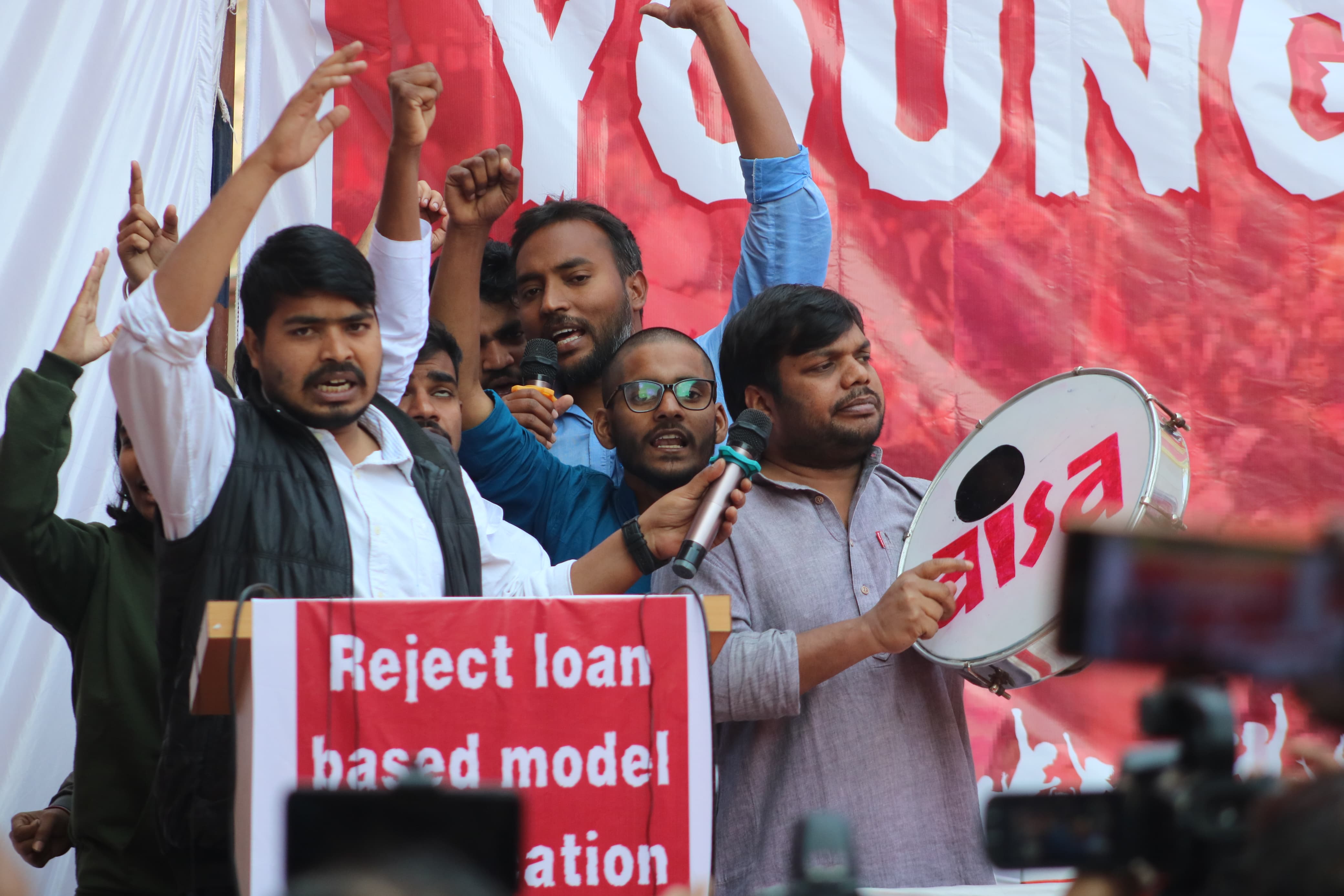
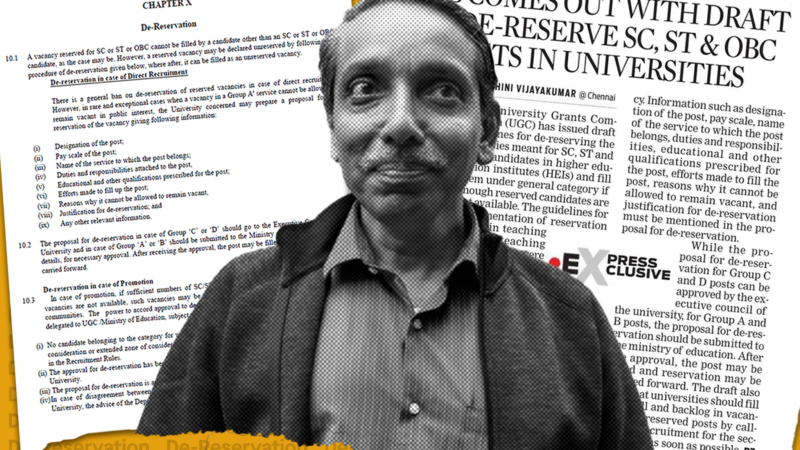
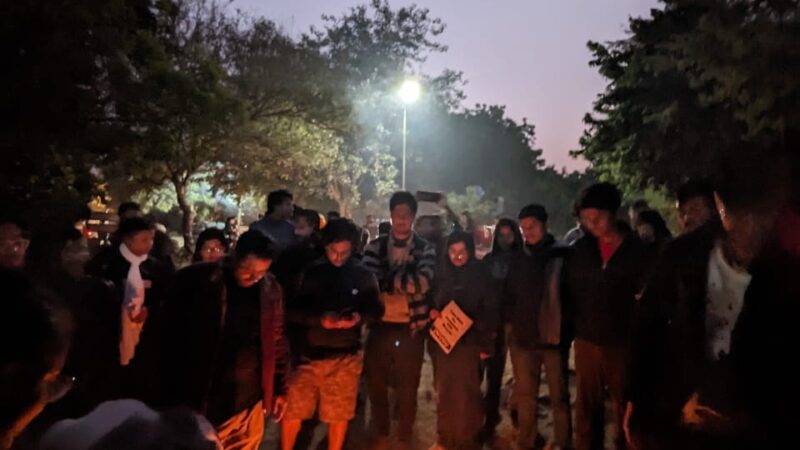

Link provided in the above news item in the Courtesy should be the following:
“http://cpimlliberation.wordpress.com/2013/12/19/ml-update-52-2013/”
Please Correct it.
Shankar